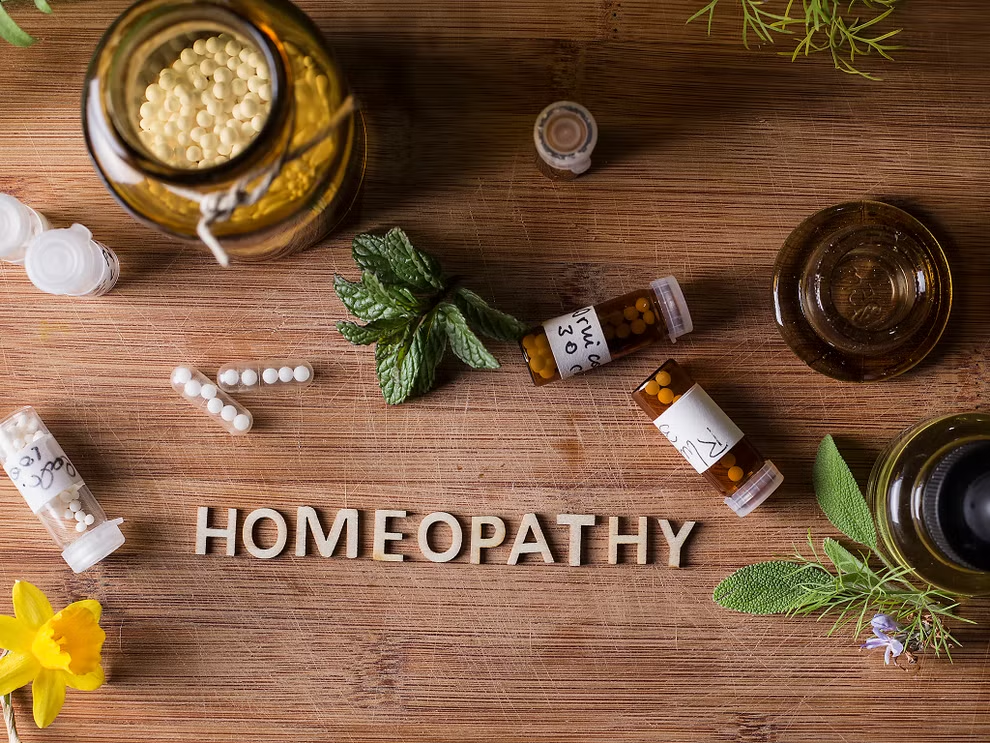Homeopathy – Overview
Homeopathy is a medical science developed by German physician Dr. Samuel Hahnemann. It is based on the principle of ‘like cures like’. In simple words, it means that any substance that produces symptoms in a healthy person can cure similar symptoms in a person who is unwell. It is referred to as the ‘Law of Similar’.
Worldwide popularity
Homeopathy is gaining popularity worldwide for its safe and gentle ways of treatment. It treats without many side-effects, is almost non-toxic and non-addictive.
In the last five years, homeopathy has grown three times faster than allopathy [25-30% annually]. It is presently the 2nd largest system of medicine in the world, according to the World Health Organization (WHO).
France is the largest contributor to homeopathy in the world followed by Germany.
About 6-9 million people in the UK choose to use homeopathy (Global TGI Barometer, issue 33 – Jan 2008)
In England, 42% per cent of the physicians refer patients to their homeopathic counterparts – (British Medical Journal)
The Royal family has used homeopathy for three generations. The Queen has carried her ‘black box’ of ‘white pills’ on her travels. It has been estimated that over 6 million people in the US use homeopathy for self-care, and day-to-day health problems.
In India, over 100 million people depend on homeopathy for health issues. There are around 200,000 registered homeopathic doctors, and approximately 12,000 new homeopathic doctors are registered every year.
Homeopathy is practiced in most European countries. It is included in the national health systems of countries like Brazil, Chile, Mexico, Switzerland and United Kingdom. Homeopathy is also practiced with good support from the government in countries like UAE, most Asian countries, and in many Middle Eastern countries.
Apart from curing acute and chronic illnesses, homeopathy has a reputation of providing relief in many difficult as well as rare ailments.
Homeopathy – Scope
Homeopathy is known to treat various types of chronic and acute complaints. People have experienced the benefits over a wide range of illnesses, such as arthritis, autism, allergies like coughs, colds, flu, atopic dermatitis, asthma, backache, bald patches, constipation, cramps, diarrheas’, digestive problems, epilepsy, ear pain, fevers, gastric problems, headaches, hair fall, infections, irritable bowel syndrome, intestinal complaints, injuries, jaundice, kidney problems, liver problems, lung complaints, menstrual complaints, nerve problems, paralysis, psychological problems like depression and sadness, rheumatoid arthritis, skin problems, toothaches, all types of chronic and acute pain, burns, and much more.
* There are over 600 published research studies, 180 controlled and 120 randomized trials conducted that demonstrate the effectiveness of homeopathy. Some research studies to support homeopathic efficiency in curing ailments are listed below:
- A pre-clinical study on “Pharmacological evaluation of homeopathic medicines” conducted at Central Drug Research Institute, Lucknow, India suggests that homeopathic medicine Lycopodium 30C has showed its benefits on high blood pressure, cardiovascular ailments, improving memory, reducing inflammation and providing over 60% protection against alcohol induced gastric ulcer.
- 6% of people treated with Homeopathy experienced good relief from allergic symptoms as compared to 67.3% of people who experienced relief from conventional medicine — Riley D, Fischer M, Singh B, Haidvogl M, Heger M. “Homeopathy and Conventional Medicine: An Outcomes Study Comparing Effectiveness in a Primary Care Setting.” J Altern Complement Med 2001
- A study of 118 eczema patients published in Complementary Therapies in Medicine reported that homeopathy was as effective as conventional treatments in the short-term but more effective in the long run.
- According to Indian Journal of Research in Homoeopathy published by Clinical Research Unit (Homoeopathy) Puducherry, homeopathic remedy Rhustox 200 has been found to provide relief from pain and stiffness in joints due to rheumatoid arthritis.
- Children diagnosed with ADHD were given conventional and individualized homeopathic medicines. An impressive 75% responded to homoeopathy.
- 58% patients suffering from major depression, social phobia or panic disorder responded favourably to individualistically prescribed homeopathic remedies.
- Findings from Swiss government’s report – “Health Technology Assessment” on homeopathic medicine are as below:
- The report cited 29 studies in “Upper Respiratory Tract Infections/Allergic Reactions,” of which 24 studies found a positive result in favour of homeopathy.
- 6 out of 7 controlled studies that compared homeopathic treatment with conventional medical treatment showed that homeopathy to be more effective than conventional medical interventions (the one other trial found homeopathic treatment to be equivalent to conventional medical treatment)
- All of these results from homeopathic treatment came without the side-effects common to conventional drug treatment.
- In evaluating only the randomized placebo controlled trials, 12 out of 16 studies showed a positive result in favour of homeopathy.
- The number of patients that achieved glycaemic control under the combination of a hypoglycaemic drug along with homeopathic treatment was nearly double (97 per cent) than that of patients on the conventional hypoglycaemic drug alone (47 per cent) [Clinical Trial conducted in Athens]
- 63 per cent patients on homeopathy had increased sleep time, reduced interruptions during sleep, and reduced nervousness without any side-effects [Two double-blind studies compared the Action of Quietude, A Homeopathic Preparation popular in France, with Diazepam (Valium) on patients with Sleeplessness]
Homeopathy can be used as supportive treatment along with conventional medicine in serious infections.
Study to support: A group of patients of diabetes mellitus type-2 were treated with Daonil, a conventional medicine, and a placebo (Group-1) and Daonil and homeopathy (Group-2). Group-1 showed 47 per cent improvement; Group-2 showed a hugely impressive 97 per cent improvement.
During your first consultation with our homeopathy experts, an assessment will be done to diagnose what you are suffering from, the stage of your illness and the scope of homeopathy in treating it.
Our homeopaths will give you realistic feedback over the possible benefits you will get from homeopathy and the duration of your treatment. For any chronic complaint that you are suffering from for over a few years, the homeopathic treatment might take some time to provide permanent relief, but symptomatic relief can be experienced as early as four to six weeks.
Homeopathy – Safe
Homeopathy is suitable for all age groups, from infants to the elderly. All homeopathic medicines are safe, provided they are taken under the supervision of a homeopathic doctor.
Some patients experience an increase in complaints after starting homeopathic treatment. This is primarily due to two reasons:
One is the sudden or abrupt withdrawal of the allopathic treatment you have been taking for a long time. This should be avoided. If you are already taking allopathic medication when you begin treatment with a homeopath, the allopathic medication should be withdrawn slowly after making sure that homeopathy has started helping you. Our expert homeopaths will guide you in reducing your allopathic medication. You should also consult your allopathic doctor for the same. This will help you avoid a sudden increase in complaints.
After starting homeopathic medicine, if you experience a short-term increase in your existing complaints followed by a feeling of improvement and symptomatic relief, it is a good sign. In such situations, the increase in complaints is for a short time and not very intense. This will be followed by improvement, which will be long lasting.
If the increased symptoms do not subside in 48-72 hours, your problem could be getting worse and the medicine is not helping it. You should immediately report it to your doctor for further assistance.

